This November is a moment of glory for the Ondo Kingdom and its King, Oba Dr. Adesimbo Kiladejo, OFR, as he turns 70. November also marks his 17th installation ceremony as the Osemawe and Paramount Ruler of the Ondo Kingdom. It is a great honour for His Imperial Majesty to have invited me to join in celebrating this milestone moment.
It is often said that generalization is a dangerous trait. However, we have discovered, time and time again, that people have traits, qualities, mannerisms, and characteristics based on some shared history — whether it be geography-based, lineage-based, culture-based, or religion-based. This phenomenon is stronger than it is often given credit for. It is what makes Igbo Ora arguably the town with the world’s highest birth rate for twins. This same phenomenon paints Ondo as a city of the illustrious. Despite the slow emergence of strong industrial structures, a vibrant and diverse economy makes Ondo a progressive home of hard-working trailblazers.
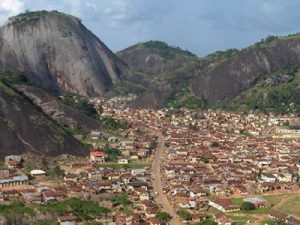
The first time I was truly in Ondo, I was immediately fascinated by the richness of the cultural display in the city that gave its name to Nigeria’s 1976-formed Ondo State. Before my first visit to the city, I had often revelled in the tales of the city’s famous mountains and high points. Nestled in the southwestern part of Nigeria and lodged at the Western border of Ondo State, Ondo is one of the state’s largest and arguably most culturally rich cities, representing profound historical significance, remarkable achievements, and enduring virtues. The vibrant Yoruba kingdom of Ondo has been and remains an instrumental part of the larger Nigerian nation.
We cannot see a king without immediately noticing his royal regalia. The same goes for Ondo and its indigenes. The Ondo people have a clue for growing crops, and the land rewards their hard work by yielding to them, making the city the supplier of yams, cassava, tobacco, grains, and cotton to neighbouring towns and cities, even beyond Ondo State and to other Nigerian states. An Ondo indigene does not shy away from dressing up in culturally rich clothes, one of the places where the Aso Oke fabric woven from cotton comes in. Ondo’s agricultural prowess supports their feeding and earnings and is the foundation for their fashion life, as there is enough Aso Oke to adorn the people. Fashion and clothing form an integral part of the overall Yoruba culture, and to trace the history of Aso Oke, the role of the Ondo Kingdom cannot be trivialized.
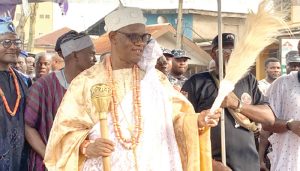
Ondo Kingdom’s contributions to the advancement of Nigeria transcend the Aso Oke merchandise and a bountiful supply of crops. The city is also the largest producer of Nigeria’s biggest agricultural export, cocoa. Ondo’s sheer cocoa produce output, alongside other large cocoa-producing towns like Ile-Oluji, contributes heavily to Ondo’s State production of about 27% of Nigeria’s total cocoa production.
The early exposure to and grooming of cocoa farmlands served as a money-making means for the indigenes of the Ondo Kingdom. This wealth that Ondo is known for reflects in the people’s commitment to education. Today, Ondo City is home to the National Institute for Educational Planning and Administration; it also boasts of a federal-owned university, Adeyemi Federal University of Education, a state-owned university and Nigeria’s first university of medical sciences; the Ondo State University of Medical Sciences, and a private university, Wesley University.
Historical Roots: Ondo, A Tapestry of Centuries Past
Ondo’s historical and cultural significance rests mainly on understanding its deep roots. Centuries before feminism became popular, there was a Yoruba kingdom whose first ruler was a female — Queen Pupupu of Ondo. In some traditions, she is traced to Ile-Ife; in some other traditions, she is called the daughter of Alaafin Oluaso (Oyo’s longest-reigning monarch), and yet in another tradition, she is the direct descendant of Oduduwa. In all its cultural richness and dynamism, Ondo’s central identity traces back to its throne and the reigning monarch, the Osemawe.
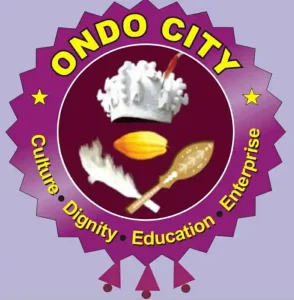
Today, Oba Dr. Victor Adesimbo Ademefun Kiladejo is the kingdom’s guardian, spiritual leader, and traditional ruler. Several Nigerian cities are only old in view but have no cultural history to show for it. In Ondo’s case, it has much to show for its white walls and old architectural buildings. Deep within the ancient fabric of Ondo’s history are tales of conquest, a ravaging Civil War — which could be called the Ondo people’s proverbial diamond passing through the fire — a people’s resilience and pride in one’s cultural heritage. These are better represented in the town’s panegyrics, which paint it as the home of illustrious loyalists.
Cultural Wealth: A Kaleidoscope of Expression
Ondo is a gourd overflowing with vibrant foams of pure, unadulterated culture, where art, music, dance, and storytelling create a profound identity. The kingdom regroups many norms, practices, and deeds that celebrate the Ondo people’s illustrious and loving spirit and character. Notable among the pride of these people is their bold worship and reverence of Ogun, the Yoruba god of iron and war.
The Yoruba people are an intentional race manifested in their language. Panegyrics in Yorubaland are not just formed for stringing words together. They reflect the state, characteristics, and history of the bearer. It then all makes sense that Ondo is historically an Ogun-worshiping kingdom. Indeed, the Ogun Festival is one of the headline events among the Ondo people. The origin of it all lies within the kingdom’s panegyrics, which open with lines proving the Ondo people as formidable, enemy-conquering, town-sacking warriors:
“Òǹdó Ọ̀jàjá,
A gbé lé t’ẹrú t’ẹrú,
A gb’ọ́jà t’ẹrù t’ẹrù…”
It is, therefore, not out of place that a kingdom known for its prowess in conquests is loyal to Ogun, the god of war.
Remarkable Achievements: A Legacy of Excellence
Ondo puts the shine on the Sunshine State. Beyond its rich history, this kingdom is an abode of successful people. It is home to several accomplishments that have brought it nothing but fame and fortune. Chief among the city’s preoccupations is the education of its people, making it one of the cities in Nigeria with the highest literacy rates. Through the years, Ondo has served as the launchpad of several successful professionals and leaders who have, in turn, contributed to Nigeria’s growth and development. Ondo is not only beneficial to its people; it also contributes to the larger Nigerian society. The place of the Ondo Kingdom in the Nigerian traditional rulership cannot be trivialized. Ondo is home to leaders who have contributed immensely to Nigeria’s political evolution.
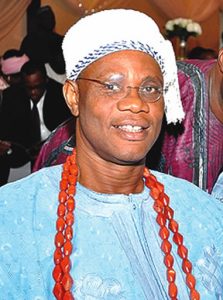
Virtues and Values: The Pillars of Ondo’s Community
Ìwà l’ẹwà ọmọ ènìyàn is a statement that underscores the importance the Yoruba people place on values and character. In this aspect, Ondo is not found wanting. This kingdom is home to virtuous Nigerians. Through actively promoting the virtues and values of the omoluabi, among other Yoruba cultural lessons, Ondo inspires its people to live in harmony and for one another, building a community of connected and committed individuals.
Hospitality, respect for norms and traditions, and respect for elders are some of the most promoted values among the Ondo people. There is also no denying the spiritual consciousness in this city. The people are in tune with their spiritual side, leading to a fine and harmonious blend of several religions within Ondo.
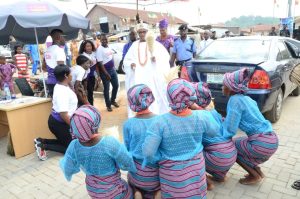
The Ondo Kingdom is a testament to the essence of Yoruba heritage. Its geographically challenging location — lodged between mountains — serves as a reminder of the relentless spirit of its people. Despite the geographical challenge, Ondo remains a formidable force in Nigeria’s agricultural industry. Through its legacy, the Ondo Kingdom reminds us of the preservation of cultural identity, and Ondo’s legacy is a powerful reminder of the importance of preserving cultural identity, staying relentless, and focusing on being illustrious. Ondo Kingdom is a place anyone would be proud to be associated with, and I am deeply proud to be affiliated with this town.

